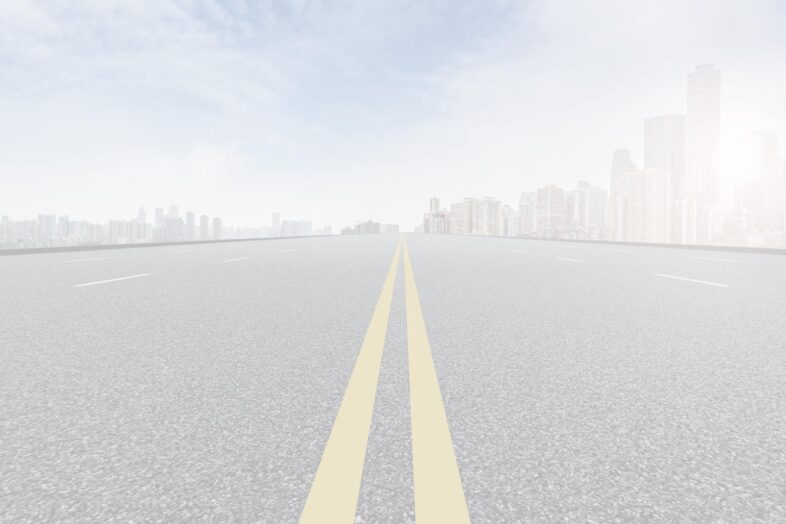Mentally Prepare for a Crisis
You have extra food items, some survival gear… but did you mentally prepare for a crisis? When the SHTF your mindset can make or break your ability to survive in a crisis!
In truth we never know how we will react in a crisis. But a little preparation can make the difference between a total disaster and success when an emergency happens.To help you prepare we talk about ways to help you mentally prepare for a crisis.
10 Strategic Mindset Tips to Mentally Prepare for a Crisis
One of the most neglected aspects of survival or in any emergency is mental preparedness. Without a doubt having the right mindset is a crucial part of being prepared. Not only will being mentally prepared help you to stay calm but it will give you an upper hand in a crisis.
Below are 10 ways to prepare for a crisis.
1. Make a Clear Plan
A clear plan will help you to stay focused in an emergency. If you’re rushing around gathering your family, it’s easy to forget stuff. But a plan will help you to stay on track. Start with pre packing bug out bags, have your supplies in a safe spot and tell everyone where to meet in the event of an crisis. This will all help to will alleviate last minute worries if you need to leave home.
Keep in mind that not all survival situations will require you to leave home. In cases of extreme weather or viral outbreaks you will need also need plan to stay in your home for extended periods of time.
Print and Laminate Survival Plans
One way to prepare mentally for a crisis is to print out and laminate a plan. Because you may not have access to electric and that means your computer or devices.
Make sure your survival plan has all of the details. This will help everyone in the family and jog your mind when you are under stress. A clear plan will not only help you to prepare mentally for a crisis but it will help you better handle what may come your way.
Having these easily accessible plans can take a load off of you when you’re already going to be in a stressful situation. You’ll want to be focused on what’s happening in the moment, and not having to think back to plans you made months or even years ago.
2. Stock Up on Essential Supplies
Obviously there is tangible physical benefits to having all a stock of your essential supplies. But there is peace of mind that comes with being prepared both mentally and for your physical needs too!
You’ve likely seen footage on the news of stores when a survival situation of any kind starts to kick off. From snowstorms and hurricanes to people worrying about a sickness going around, people start to crowd supermarkets and strip the shelves clean.
Being in an environment like the store at the start of a survival situation can be very dangerous and stressful, and you’ll be very grateful that you were able to stock up ahead of time if you do it.
While many people aren’t able to easily stock up on that much food and supplies at one time, you can slowly build it up over time while people are relaxed, and over the course of a few months have yourself a substantial supply.
You won’t need to be one of the people worrying about being able to get things like PPE, first aid kits, or long lasting food if you already bought it all months in advance. Having one less thing to worry about is always advantageous.
3. Practicing Skills to Build Confidence
Something that you might notice about some survival preppers is that they are always talking about the skills they ought to use. But in the event of a survival situation few seem to practice them or at least very well.
And while experienced individuals can make it look easy, something as simple as using a fire starter stick is a difficult task especially if you are under pressure. Take time before hand to practise using all of the items. And you will be better equipped to handle emergency situations.
Practice it somewhere safe, and get consistent with being able to produce sparks with a fire starter. Practice safely starting a campfire complete with tinder. Start a fire with starting sticks, and then larger logs. Do this with all of your survival gear and build your confidence in the process.
The same applies for simple filtration straws, they may seem self-explanatory, but it’s easy to overlook simple things like priming them with some water first. Practising you help your mind memory response under stress. Small things give a lot of peace to get you prepared for a crisis.
Take time to be fully acquainted with how to use every bit of your first aid kit. The last thing you want to have to do while dressing a wound is have to break out and study a lengthy manual on the fly.
By being proficient with essential parts of your survival kit, you will have more confidence in yourself. If doing important things like first aid and starting campfires comes easily to you, you’ll be less stressed when it becomes required for survival.
4. Help Other to Prepare
Friends, family, or even roommates, may panic in an emergency. But teaching them to prepare will not only help them but it will help to build your mental resilience and build memory muscle. This mans by teaching others you will integrate what you know. And this will help you be mentally prepared in a crisis situation.
When you remain self-assured and calm, you can help others by demonstrating confidence. When you are mentally prepared you show leadership giving them the confidence to act better in a situation.
5. Self Reassurance to Mentally Prepare for a Crisis
No matter what you think you’re capable of, nobody is entirely immune to the anxiety and fear that will accompany a survival situation. And while it may seem trite there will likely be times when you will need to override fear using self reassurance.
Sometimes the simple act of reminding yourself that you know what you’re doing will provide you enough strength to push through tough times.
6. Prepare Mentally to Alleviate Panic
Panicking is the most dangerous thing you can so in an emergency. Yet it is normal. Many people underestimate the harm that panic can do for you both in short term and long term survival situations. There are plenty of adverse effects that can stem directly from losing your cool in stressful situations.
One of the worst side effects of panicking is making mistakes that you otherwise wouldn’t make. When you start to get nervous and try to work quickly, you’re bound to mess up simple things that you know how to do normally.
These mistakes can be minor, but they can also be costly. Something like tying a knot wrong and then having to retie it is no big deal, but not properly filtering your drinking water could have serious consequences.
In the long term, this stress can even cause you to be more prone to getting sick or having certain health problems, due to the sustained long-term increase in cortisol levels.
7. Practise Survival Skills
Just as you wouldn’t perform in a play without practicing, you shouldn’t make survival plans and never test them out. When you practise survival skills you will not only a get familiar but it will help you prepare mentally for a crisis.
And in addition, to building confidence you will be able to identify flaws in your plans so you can fix them before the time comes.
Rehearsing your plans plans might involve practising with certain tools. Or maybe it involves physically walking your escape route so you can get a feel for the area.
Practice a variety of things that you may need. From setting up a tent, using fire starters, tying knots or anything that will help you to survive a crisis.
8. Have a Backup Plan for Emergencies
As important as detailed plans are for survival, something is bound to go wrong at some point in your plan once it needs to be enacted. No matter how much you practice it, you cannot predict the conditions you will deal with.
This is why it’s important to have entirely separate backup plans. Or at the very least, have addendums to your plans in the event that something goes wrong and you need to change course.
For example, one of your plans might involve taking your family in the car and driving out to a separate ranch somewhere to hide out. In that case, what are you supposed to do if the roads become closed or entirely congested with traffic?
If you don’t have backup plans that you can use in the event of unforeseen conditions, you’re not only going to be in a bad spot objectively, but mentally as well. Panic will quickly set in once you have to come up with a whole new plan on the fly.
By taking a bit of extra time to come up with some alternative scenarios, you can prevent yourself from getting into a mental mess later down the line. Consider what kind of hurdles could likely prevent your plan from working out, and how to avoid them.
9. Ways to Keep Your Spirits High Using Non-Essential Items
Not everything you carry with you in a survival situation has to be a highly essential piece of equipment. There are things you can keep on hand to lift your spirits and help maintain yourself mental calm.
This is especially important in times of stress is, especially if you have kids.
Helping everyone stay calm and mentally prepared may be as simple such packing a few small items such as: a puzzle book, cards or domino set or a harmonica. These are helpful items that will stave off boredom, and keep stress at bay. And make sure that these items don’t require electric since power may be out.
If there is room pack a few comfort items like dark chocolate as a treat. Chances are you’ll get sick of eating canned vegetables and preserved meat after awhile, so having something like little candies can also bring some stress relief.
10. Kick Addictive Habits in Advance
In a survival situation the last thing you want is something like an addiction hold you back from being alert and calm. The sudden withdrawal of addictive products can make you irritable and stressed than without this.
Whether it’s cigarettes, alcohol, or even caffeine, they can all have adverse effects if you suddenly stop using them Just think about your coffee fix… if you are suddenly without caffeine you may be more sluggish and more irritable without it.
Since you may not have caffeine consider quitting addictive habits that may hinder you if you are unable to access it.
In times of crisis you need to remain sharp, this means quitting habits that you may be dependent on and will not be able to access later. In addition to not having access addictive products like alcohol, drugs and any other products can cloud your judgement. And you will be less likely to get irritable because you lack something you were used to having.
By being prepared and having a strategy in advance, you will be best able to help yourself and other with a better mental state. Staying calm in the event of an emergency will prevent accidents or mistakes. And you will be able to help others to do the same. The worst thing you can do in survival is panic, so prevention is key first and foremost.
Concluding to Mentally Prepare for a Crisis
These tips will help you get mentally prepared in a crisis. And when you are calm you will instill security and help all of those around you. Having things like food, water, and shelter are very important, but it’s hard to utilize them effectively if you can’t think! The sad case for most people is that panic will set it. But if you get prepared mentally you will gain your balance quicker than those who did not prepare.



